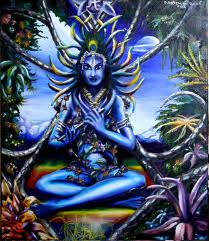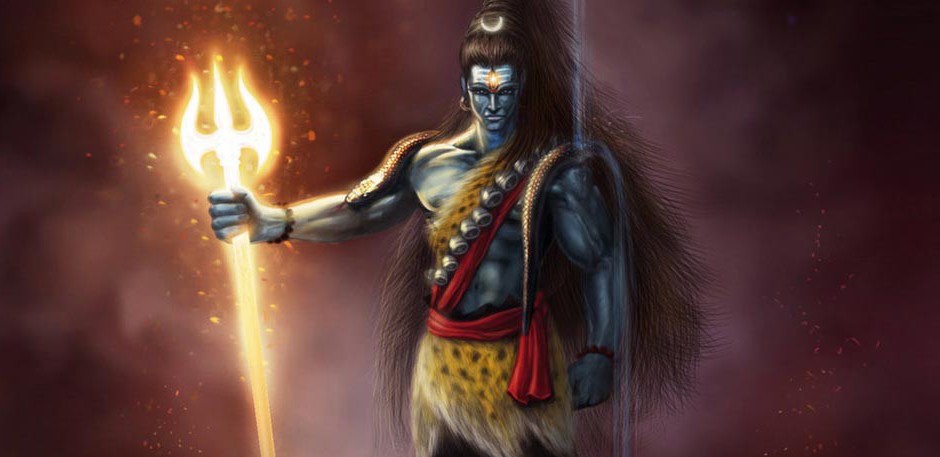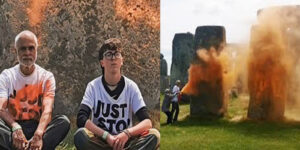Shivratri is one of the most popular festivals in the Hindu world, celebrated with devotion and fervour by millions of Hindus each year.
 In the Hindu view, the Divine Being transcends all human conceptualisation, yet can be approached in many ways. The deities of Hinduism reflect realizations of God on various levels, as experienced by ancient Rishis in deep meditation. Shiva is one of the most important deities, and His worship forms part of the daily lives of many Hindus. He is the Lord of Yogis, the Lord of Time and the Destroyer. The destructive aspect of Shiva is not something to be feared; it is destruction for the purpose of regeneration. He destroys that which is old and impure in order to make room for a new creation, which is pure and divine. On an inward level, He oversees the annihilation of old habits, attachments and ego – all essential for us to progress on the spiritual path.
In the Hindu view, the Divine Being transcends all human conceptualisation, yet can be approached in many ways. The deities of Hinduism reflect realizations of God on various levels, as experienced by ancient Rishis in deep meditation. Shiva is one of the most important deities, and His worship forms part of the daily lives of many Hindus. He is the Lord of Yogis, the Lord of Time and the Destroyer. The destructive aspect of Shiva is not something to be feared; it is destruction for the purpose of regeneration. He destroys that which is old and impure in order to make room for a new creation, which is pure and divine. On an inward level, He oversees the annihilation of old habits, attachments and ego – all essential for us to progress on the spiritual path.
Shivratri is the night on which Lord Shiva’s energy and grace is most easily accessible to the devotee. Many devotees observe a strict fast. Some do not even have a drop of water, and keep vigil all night. The priest performs a special puja at regular intervals, while the congregation repeats the mantra “Om Namah Shivay” and sings devotional hymns to Lord Shiva.Many famous legends are associated with the festival. One of these is the tale of the hunter who fled up onto a tree to escape an angry tiger. The tiger waited at the foot of the tree, so the hunter had to stay on the treetop throughout the night.
At the foot of the tree was a Shiv-Ling, but the hunter didn’t know this. To pass time through the night he broke leaves and nuts and threw them onto the Shiv-Ling. Therefore he unknowingly performed the ritual for worshipping Shiva! In the morning Shiva was present at the spot, and the tiger was gone. The hunter prostrated himself before Shiva, who blessed him.
 This seemingly simple legend contains multiple meanings about the nature of man and God. It highlights Lord Shiva’s nature as benevolent and easily pleased, even by worship that is offered in ignorance. In the daily grind of our lives we are like the hunter who inflicts pain on others, yet retreats in great fear when somebody is about to inflict pain on us. The Lord is graceful, and even though we will have to live through the consequences of our actions, the Lord’s love is guiding us to safety and towards a more noble life.
This seemingly simple legend contains multiple meanings about the nature of man and God. It highlights Lord Shiva’s nature as benevolent and easily pleased, even by worship that is offered in ignorance. In the daily grind of our lives we are like the hunter who inflicts pain on others, yet retreats in great fear when somebody is about to inflict pain on us. The Lord is graceful, and even though we will have to live through the consequences of our actions, the Lord’s love is guiding us to safety and towards a more noble life.
Another story connected with Shivratri, from the Puranas, describes when Shiva drank the deadly poison that was thrown up by the ocean when the Devas and Asuras were churning it in the quest for the nectar of immortality. The ocean threw up many objects before the nectar appeared, including some deadly poison. The poison was so toxic that it would have killed everybody. Shiva appeared at the scene, and drunk the poison, in order to protect the world’s inhabitants. Shiva kept the poison at the level of his neck, because if he let it reach his stomach it would have been harmful. Therefore Shiva’s neck is dark blue, which is the colour of the poison.
The poison represents all the negativity and evil in the world. In order to help the world progress, a spiritual person must engage with society and its problems, not stay aloof from them. This includes being around society’s negative and evil tendencies, to prevent them from destroying society. It is important not to allow this ‘poison’ to actually affect and harm us, and this requires vigilance. One can unknowingly take up negativity if we are surrounded by it. But through vigilance and care this can be avoided. This is the meaning of ‘keeping the poison at the neck’, whereby it is kept at a level that we can manage without allowing it to poison us.
Shivratri is also associated with Shiva’s wedding to Goddess Parvathi. The wedding symbolises the mystical union between spirit and matter, which forms the basis of our existence.






























